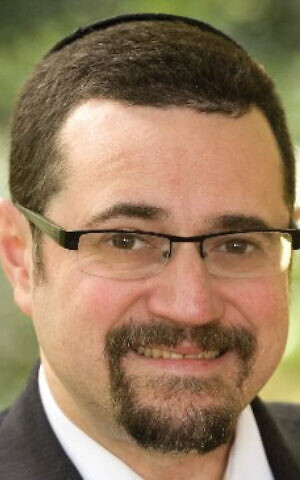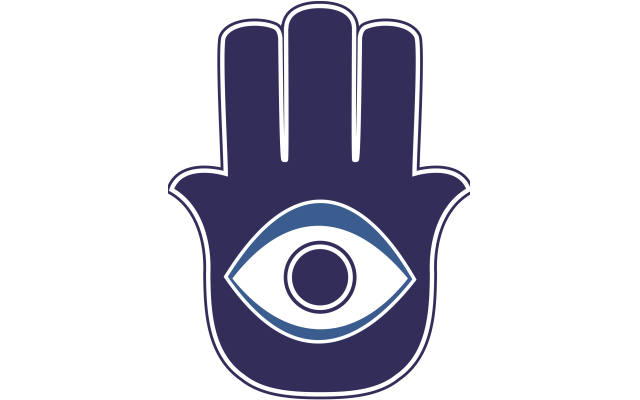Resolutions vs. Superstitions
What does Judaism have to say about secular New Year vows, symbolic acts and superstitions protecting our achievements?
For Jews, the opportunity to create resolutions for change comes twice a year: the high holidays and the secular New Year. At those times, we take the opportunity to improve ourselves with commitments to G-d and ourselves to will our promises and hopes into existence. The intersection of secular and Jewish traditions, along with a mystical belief in a higher power, bordering on superstition to protect and guide us, is where we find ourselves at the cusp of another blank slate – the new year.
The AJT asked a few Atlanta rabbis to discuss the connection between resolutions and superstitions.

“Making a resolution is very cherished in Jewish tradition and also in Jewish mystical tradition,” said Rabbi Ari Sollish, who teaches regularly about kabbalah, Jewish mysticism. The founder and director of the Intown Jewish Academy added, “Resolution-making is considered a very sacred experience. It’s not just an expression of hope or a wish; it’s a powerful tool that we can use to manifest a certain reality that we wish to be. The idea that speech is powerful and can create or destroy is not just a mystical, kabbalistic idea, it’s a truth that we see all around us.”
While some may doubt the existence of supernatural beings, words are known in Jewish tradition to create an energy, light or aura that some connect with angels. “Everything we say has impact – for better or worse – and creates a real energy.” Sollish explains that positive energy or words can help propel us, and the opposite saps our energy.

“There’s a sense that when we say something, we actually create a reality. And this is not just in a spiritual sense. In truth, our words create a physical reality.” In this way, we are meant to keep our vows, Sollish said. “Making a resolution is a powerful thing that is not meant to take lightly. We are supposed to mean it. It is real and significant, and it creates a new reality.”
When we verbalize our commitment through a resolution, it helps us create a reality, “step into it and keep it.”
On the other hand, Jews are always wary of the negative energy that threatens us. For this reason, superstitions such as the “evil eye” have emerged. In Hebrew the evil eye is known as the ayin hara and in Yiddish, some may follow a blessing with kinahora, combining kayn ayin hara (no evil eye), to prevent positive energy from being lost. The pronouncement of kayn ayin hara or kinahora, sometimes accompanied by mock spitting three times, is to ward off the evil eye and protect the blessing or anyone thinking ill of it.
Sollish explained that the reason to ward off the evil eye is “based on the thoughts we have that impart energy whether they can be seen or not. If one thinks negatively about another it could cause harm to that person. Physically we have the power through our actions to harm someone. Our words can likewise cause harm and so can our thoughts.”
There are also customs based on Jewish law that touch on this concept, such as not calling a father and son back-to-back to the Torah, Sollish said. “The idea is to not create a situation where people could be jealous and begrudge the blessing and create a negative energy. We want to avoid that.”

Some Jews may also put off decorating a baby’s room or announcing the gender of the child because of this superstition. “It’s related to ayin hara,” he said. “They do not want to put their blessing out there before it has materialized. It makes sense.”
Sollish admitted, “Unfortunately, begrudging others’ success is part of the darker side of the human condition, the reality of the human condition,” which includes competition to excel over others.
“Jewish superstition is grounded in something real. Superstitions and customs are based on reality and work around that reality. Words and thoughts create an energy; superstitions are around us to protect ourselves and our loved ones against evil thoughts.”

Rabbi Joshua Heller, known as an authority on Jewish law and practice, said Jews are “definitely big on symbolic things to impact the coming year.” For example, on Rosh Hashanah, the Jewish New Year, we eat certain foods believed to bring good luck such as the head of a fish so we get “ahead for the coming year.” The word for carrot is similar to the word “more” in Yiddish, and the Hebrew word for beet is similar to the word for “remove” as to remove bad luck, explained Heller, rabbi of Congregation B’nai Torah.
“Gourd in Hebrew is similar to the word for ‘to tear up’ as to tear up the evil decree. People specifically go out of their way to eat these foods. You could see it as trying to influence G-d or maybe to inspire you to change your behavior.”
Other Jewish New Year practices are also symbolic for casting off evil such as tashlich, when Jews throw figurative sins, as bread, into moving water. There’s also the lesser-known and more ancient practice of kapparot, waiving a live chicken over the head to transfer bad deeds to the animal. The custom has since been modified using money instead of a chicken.
“Judaism is full of symbolic acts. You can think of it as mystically transferring bad deeds to something else, symbolic of having better behavior in the coming year. You can look at it as mystically or psychologically.”
In general, though, Jewish law is not in favor of vows, Heller said. “It’s better not to vow at all than to vow and not fulfill,” he said, quoting from Ecclesiastes. “Don’t let your mouth bring you into disfavor.”
Making resolutions is not a particularly Jewish idea, Heller said, but “one of the most basic ideas of Judaism is that every day is a chance for self-improvement. We do have the idea of teshuvah, repentance, when we commit to a better path. … It’s what the high holidays are all about.”

Rabbi Rachael Klein Miller of Temple Emanu-El shared similar sentiments about the secular New Year and its rituals. “January 1 is not technically part of Judaism.” It actually has some Christian contexts, she said.
What’s relevant is that “Judaism teaches about rituals. There are all these opportunities to do rituals. We have rituals that help us stick with our resolutions. … We do rituals to keep us committed.”
For instance, Shabbat is a weekly ritual, as are shaking the lulav and etrog or kissing the mezuzah.
Marking time is also a common Jewish practice, she said. “People look at Jan. 1 as a launching pad. I think it’s wonderful.” It’s the same concept employed during the high holidays, when Jews have a chance to start anew and hold themselves accountable, she said.
“We don’t call it resolutions; it’s teshuvah, readying ourselves for the Jewish year ahead. … We are returning to the right path, which is teshuvah, or making repentance,” Miller said. “Because we are Jewish Americans we have a chance to think back about the Jewish New Year at Rosh Hashanah and have I accomplished a goal and where did I miss out?
“The term resolution we hear for the secular New Year, I don’t think is that different. We resolve to be a better person. You want to be resolute in your teshuvah.”
- Roni Robbins
- Resolutions
- Community
- New Years
- Superstition
- Rabbi Ari Sollish
- kabbalah
- mysticism
- Intown Jewish Academy
- energy
- Evil Eye
- Yiddish
- kinahora
- kayn ayin hara
- Human condition
- Rabbi Joshua Heller
- rosh hashanah
- Congregation B'nai Torah
- kapparot
- Rabbi Rachael Klein Miller
- Temple Emanu-El
- Shabbat
- Ritual
- teshuvah




comments